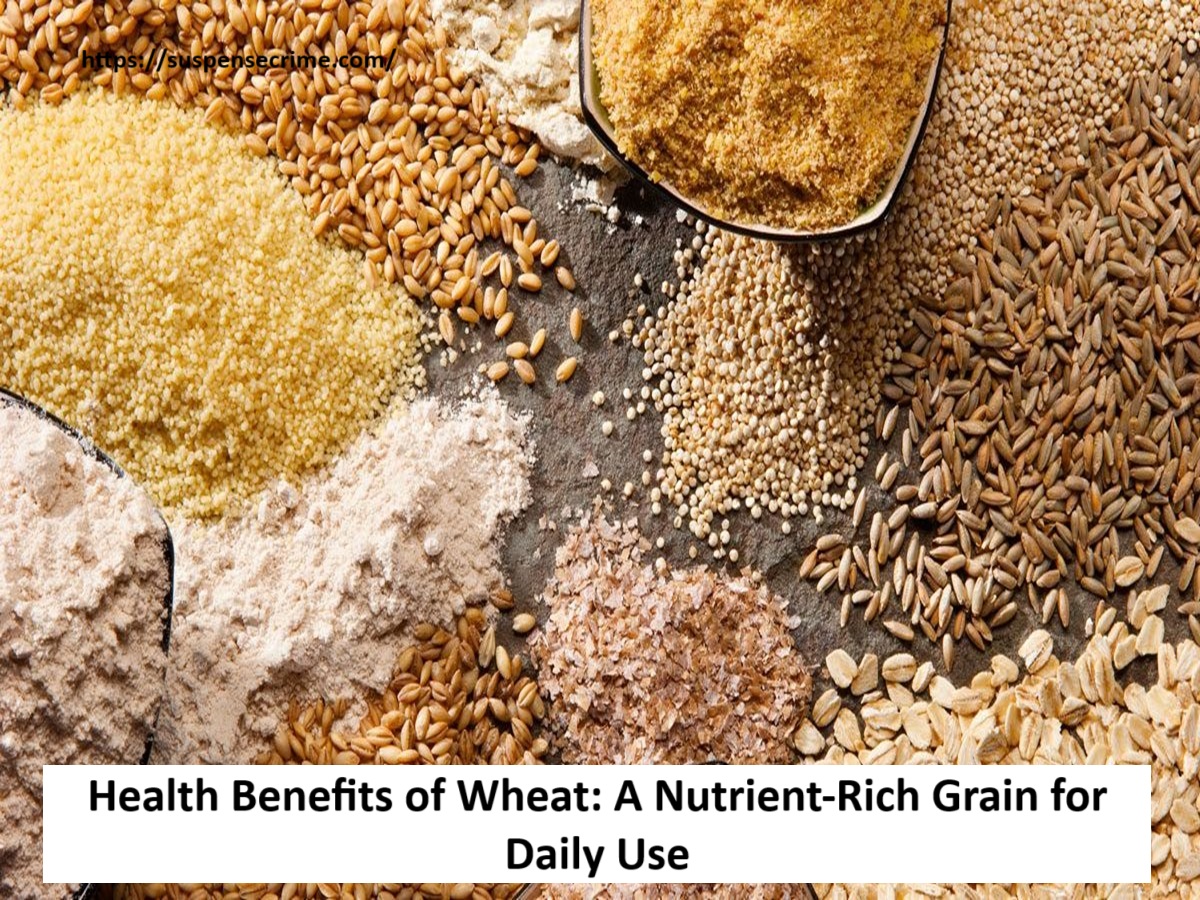
Suspense Crime, Digital Desk : Wheat is one of the oldest and most widely used grains in India. It is well regarded for its taste and nutritional value. Foods like phulka Rotis and wheat dhokla provide energy and aid in strength throughout the day. In Ayurveda, wheat is described as a medicinal grain that nourishes and promotes internal healing.
Wheat is rich in fiber, protein, vitamins, and minerals, it helps resolve various health problems when included in the diet regularly.
Helps Digestion and Chronic Conditions
In men, the consumption of whole grains, especially wheat, leads to better heart health. Consumption also helps improve blood sugar levels, blood pressure, and heart activity. For some individuals, nutrition may help with arthritis, diabetes, and mental health due to overall malnutrition.
Wheat and Diabetes: Safe Usage Tips
There is a perception that diabetic clients should not consume wheat. The concern lies in the very refined flour. In this case, coarse bran wheat flour is much better. The other option is eating sprouted wheat which improves insulin sensitivity and helps lower blood sugar levels naturally.
Relief from Arthritis and Joint Pain
An effective Ayurvedic treatment for joint pain is as simple as making a paste from wheat. Combine wheat flour with goat milk and desi ghee to form a paste. Applying it on the affected region of the body two times a day will ease swelling and provide relief. Historically, this is how people used to manage their joint issues.
Support Heart Health and Brain Function
In the case of high blood pressure, bran-rich wheat flour assists in keeping the blood vessels and arteries in good health. Important constituents of ‘Wheat’ such as vitamin B, iron, and zinc are known to enhance the functionality of the brain, aid in memory recall, and diminish fatigue.
Read More: Saunf and Ajwain Water Understanding Their Distinct Digestive Benefits, Explained by a Doctor

 Share
Share



